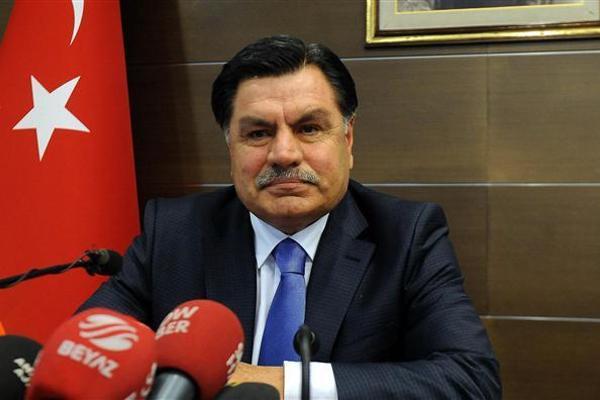Turkey’s top judge warns against ‘new tutelage,’ deplores becoming ‘scapegoat’
ISTANBUL


The head of Turkey’s Constitutional Court, Haşim Kılıç. DAILY NEWS Photo
The head of Turkey’s Constitutional Court, Haşim Kılıç, has deplored becoming the government’s scapegoat for the ruling overturning bans on Twitter and YouTube earlier this year, while warning that the once decried “judicial tutelage” has been replaced by a new one.“The judiciary had been under a system of tutelage since 2010. New legal arrangements are being made to supposedly end this tutelage. But what’s now happening is a new tutelage, much more dangerous than the previous one,” the veteran judge was quoted as saying by daily Cumhuriyet Dec. 30 during a closed-door meeting at a think tank in Ankara.
The government has conducted a massive purge of the judiciary following the launch of two graft investigations last year that implicated four former ministers along with businessmen in charge of mega-projects, including Istanbul’s third airport, and known for their closeness with the government.
The then-prime minister, President Recep Tayyip Erdoğan, accused U.S.-based Islamic scholar Fethullah Gülen’s movement of having established control in key positions in the judiciary and police through its followers, describing his influence as a “parallel structure” while justifying the purges as attempts to “end tutelage.”
But Kılıç denounced the methods used by the government to restructure the judiciary and questioned the intention of declaring the judicial institutions a new battleground. “Most of those arrangements are lacking of legality. The situation of the judiciary is quite bleak. There is great distress,” Kılıç said.
The latest chapter of the government’s self-proclaimed fight against a Gülenist network within the judiciary came with elections at the 22-member Supreme Council of Judges and Prosecutors (HSYK), which holds a key grip in appointing legal personnel.
The elections turned into a veiled battle between both camps, with lawyers eventually linked to the ruling Justice and Development Party (AKP) being selected to the board. The first batch of appointments was made earlier this month, with 144 new members nominated to the Supreme Court of Appeals and 33 to the Council of State, most of them considered to have close AKP ties.
According to Kılıç, the government is trying to increase its influence in the higher judiciary courts by filling new departments with names close to them. This causes the number of lawyers serving in both institutions to rise to aberrant proportions, Kılıç also said, stressing that the U.S. Supreme Court was composed of just nine judges, while the Turkish one has 526.
“You cannot solve the judiciary’s problem by increasing the number of members in judicial institutions. Appointing [a large number of] new members, truckloads of them, doesn’t solve anything,” he said.
Court waited for rulings against Twitter, YouTube bans
Kılıç also said that the Constitutional Court waited for the Telecommunications authority, an institution linked to the Prime Ministry, to implement stay of execution orders issued by the Council of State against blocking access to both Twitter and YouTube.
“We waited eight days for them to implement those stay of execution orders, but they didn’t. As a result, our court lifted the decisions to block access,” Kılıç said, deploring the criticism directed to him after the decisions.
“They declared me a scapegoat,” he regretted.
‘I will speak out’
Kılıç also revealed his intention to speak out about the accusations against the Constitutional Court after his retirement next March. Kılıç was appointed to the court more than 20 years ago by late President Turgut Özal.
Kılıç also said he will not refrain to give his opinion about interferences to the judiciary that he considers “political.”
The Constitutional Court recently became the government’s target following rulings on individual complaints, particularly for taking over the agenda on complaints that the 10 percent election threshold is unconstitutional, in an announcement described as a “coup” by some officials.
